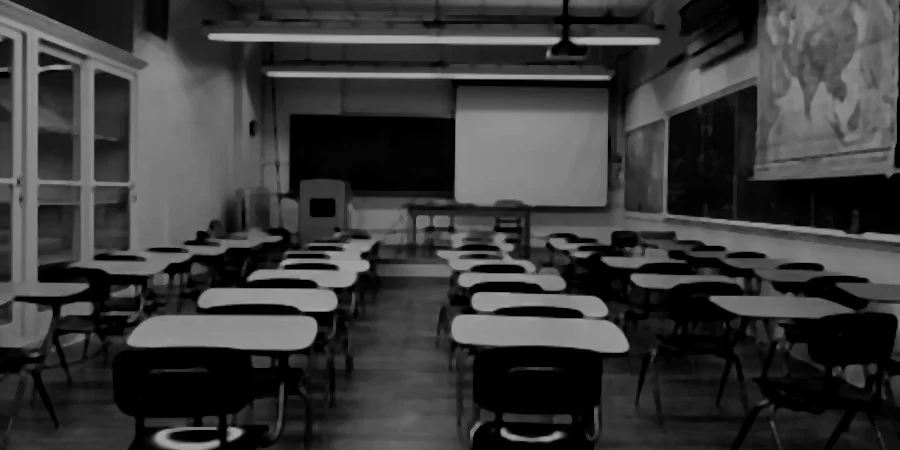Content Warning: The Columbine shootings, and also, inevitably, Nazis.

The narrative around school shootings is broken.
The story of the school shooting is a strangely modern mythology, something that started in the 1800s but which was crystallised into a media event, a replicable, repeatable thing, through the attempts of the media landscape of the 2000s grappling with trying to explain the horrible events of the Columbine school shootings in 1999.
Narratives that draw on them find some loner, some isolated student, often some child whose brain is ‘wrong,’ or who demonstrates some dangerous signs in his childhood, maybe with an abusive mother and no father. There is usually some signifier of nerdiness, or the ability to lose himself in fiction. The story will focus on a screen, or maybe on reflected light on the face of the nerd and slowly, steadily build with notes of tension, as you know where this is going, or might go.
It wasn’t helped by the work of actual grifters like Jack Thompson and the videogame moral panic, trying to assert in the early 00s that it was the affordances of the Doom and Quake engines and the early stages of online competitive combat gaming, were turning kids into violent monsters. That made some sense, it was easy to imagine; you were seeing your kid in moments of great competition, in a social circle that valorised outcomes and had a toxic relationship to failure. You’d get kids swearing and raging and being angry at their computers and we didn’t have a good social system to explain ways to reconcile these complicated feelings. A ridiculous villain and an unsympathetic framing and the need for an explanation and the frightening persence of a child in your life showing aggression and competition and dealing with toxic friends, made it so easy to blame not the behaviour, not the things we do understand, but the things we don’t.
The conversation often comes up around guns, too. And I mean, I’ve made this point — a country where we don’t have as many guns has fewer opportunities for people to make mass shootings happen. I think that’s a really good example of a material need for a school shooting. You need reasonably available guns and a permissive attitude towards their use. Guns made this school shooting possible, and if you want to, you can make it a lot harder to do a school shooting by making guns unavailable. And someone may then argue that even if you do that, you don’t stop violence at schools, but it’s a bit like the argument that some people get sick even with masks, so all masks are useless.
Christians love to talk about the idea that this was an example of atheist terrorism, where the shooters singled out Christians and Jocks, and did some sort of ritualistic killing. The accounts of this are conflicting, and exaggerated, which is wild, because I thought Christians were big on this idea of like, not bearing false witness, and they wouldn’t need to invent narratives about their own suffering and oppression if this thing actually happened the way they want to say it happened, right? Anyway.
The narratives, though, run into the problem of ignoring the things that the shooters (who are going deliberately unnamed here) stated as their motivations. They talked about how they wanted to start a revolution, they spoke glowingly about Nazis and Soviets and it seems that largely, they were pretty big on the idea of causing an incident and mass death. What’s exceptionally wild to think about is that if their action was a terrorist one — where the action is meant to change the political behaviour of others away from the site that was struck — it worked. It didn’t achieve their ends, but they absolutely changed their country to make it more fearful, to make school shootings more common, to open a door and set up systems for both causing these things and also making guns more common.
But there’s an insidious backroad in this monetisation, in the movement of the grifters.
There is a direct line between Jack Thompson demonising videogames and the resultant link of an act of fascist terrorism that created a channel for ‘gamers’ as an identity to slide effortlessly into fascism. Not ‘games make you fascist,’ but that gamers were told they were like the Columbine shooters, and there’s an irony-poisoned drunkenness of the millenial mind that follows along this. It starts defensive, then it becomes ironic embrace for comedy, then, if not arrested, it becomes genuine embrace. There’s a long documented rabbit hole effect here, where these social spaces slowly funnel you towards the extreme ideology in a place for people to recruit you.
It isn’t that gamers become fascists over time.
It’s that fascists have a recruitment channel for gamers, and that channel was created by people for money and clout.
2 Trackbacks